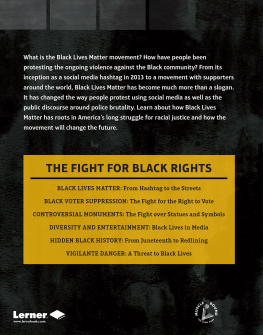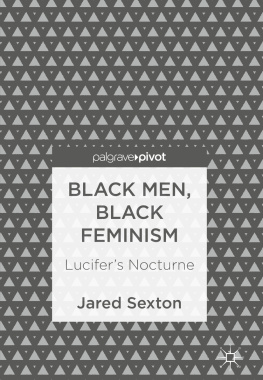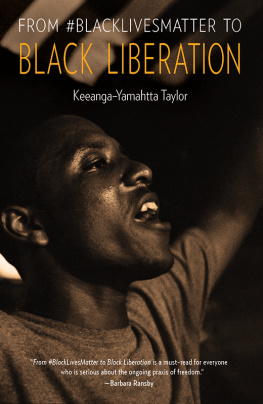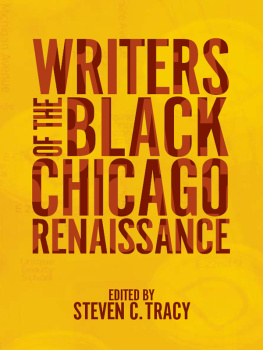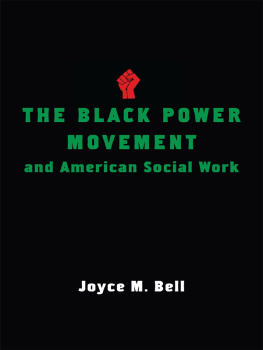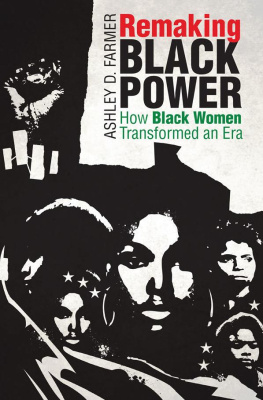The University Press of Mississippi is the scholarly publishing agency of the Mississippi Institutions of Higher Learning: Alcorn State University, Delta State University, Jackson State University, Mississippi State University, Mississippi University for Women, Mississippi Valley State University, University of Mississippi, and University of Southern Mississippi.
www.upress.state.ms.us
The University Press of Mississippi is a member of the Association of University Presses.
Copyright 2020 by University Press of Mississippi
All rights reserved
Manufactured in the United States of America
First printing 2020
Library of Congress Cataloging-in-Publication Data
Names: Corrigan, Lisa M., author.
Title: Black feelings: race and affect in the long sixties / Lisa M. Corrigan.
Description: Jackson: University Press of Mississippi, 2020. | Includes bibliographical references and index.
Identifiers: LCCN 2019053595 (print) | LCCN 2019053596 (ebook) | ISBN 9781496827944 (hardback) | ISBN 9781496827951 (trade paperback) | ISBN 9781496827968 (epub) | ISBN 9781496827975 (epub) | ISBN 9781496827982 (pdf) | ISBN 9781496827999 (pdf)
Subjects: LCSH: African AmericansCivil rightsHistory. | Black powerUnited StatesPsychological aspects. | EmotionsSocial aspects. | BISAC: SOCIAL SCIENCE / Ethnic Studies / African American Studies
Classification: LCC E185.615 .C673 2020 (print) | LCC E185.615 (ebook) | DDC 323.1196/073dc23
LC record available at https://lccn.loc.gov/2019053595
LC ebook record available at https://lccn.loc.gov/2019053596
British Library Cataloging-in-Publication Data available
This book is dedicated to Linda Corrigan and The Ralph and Claudia Schaffner.
CONTENTS
Introduction
Racial Feelings in Black and White
Chapter One
Postwar Feelings: Beyond Hope
Chapter Two
Contouring Black Hope and Despair
Chapter Three
American Negritude: Black Rage and the Restoration of Pride
Chapter Four
Feeling Riots: The Emotional Language of Urban Rebellion
Chapter Five
Mourning King: Memory, Affect, and the Shaping of Black Power
Chapter Six
Revolutionary Suicide: Necromimesis, Radical Agency, and Black Ontology
Conclusion
The Obama Coalition: Reinvigorating Liberal Hope
ACKNOWLEDGMENTS
In all honesty, I began this book as a response to a reviewer who characterized the Black Power movement as an emotionally immature political program led by a bunch of angry kids. I was tired of white reviewers in rhetorical studies dismissing scholarship about radical black activism as juvenile or underdeveloped, even as adjacent disciplines were revisiting the tremendous contributions of Black Power. I was tired of reading reviews that lazily rejected any rhetorical analyses that took seriously the political theory or practical activism of radical black movement organizations. I was tired of hearing that radical black leaders were too emotional and werent pragmatic enough. Mostly, I was tired of the structural racism of the academic review process, where white gatekeepers used their tacit racism to undermine the circulation of scholarship that centered the perspectives of black people, generally, but black men, specifically. Given that the American tradition in the field of rhetoric originally centered on biographical and critical assessments of the Great [White] Man, producing a body of scholarship about the significant rhetorical contributions of radical black intellectuals has been a challenge that I have (obviously) taken up with much aplomb.
It is my hope that Black Feelings: Race and Affect in the Long Sixties provides longitudinal analysis that will help future scholars articulate how feelings have motivated and continue to animate white assessments of black activism and to understand how black activists have used emotions to propel radical and innovative political theory and engagement. I hope that lay readers of this book and the rest of my scholarship will also find utility in thinking through antiblack public policy and radical black activist responses to the failures of liberalism in ways that challenge myths about the civil rights and Black Power movements.
Thanks to Craig Gill and all the wonderful folks at the University Press of Mississippi for their unconditional support. Thanks to Vijay Shah for his diligence, Davis Houck for his vision, Steve Yates for his execution, Courtney McCreary for logistical support, Todd Lape for his creative genius, and Lisa McMurtray for keeping me on task. Thanks, too, to the good folks at the Mississippi Book Festival, which has been a wonderful venue for my work.
The earliest part of this book was presented at the Public Address Conference (PAC) in Atlanta in 2014 thanks to the kind invitation of the programming committee, including Mary Stuckey, Michael Bruner, David Cheshier, Nate Atkinson, James Darsey, and Carol Winkler. From this wonderful experience, I need to thank respondents to early iterations of these ideas, including Kirt Wilson, Eric King Watts, and Robert Terrill. It would be impossible for me to overstate how this experience changed my career and the opportunities that have followed. In that vein, I need to thank Chuck Morris, Jeff Bennett, Peter Campbell, and Leroy Dorsey, who supported my work as a result of that talk at PAC in 2014.
Various talks from these chapters have been possible thanks to the support of the Vanderbilt University School of Divinity and Black Cultural Center; the Hilliard Research Lecture Committee, University of Nevada at Reno; Department of African and African American Studies at Washington University; Crystal Bridges Museum of American Art; Department of Communication Studies at Davidson College; Department of Communication and Rhetorical Studies at Syracuse University; Department of Gender and Race Studies at University of Alabama; Department of Africana Studies at California State UniversityFresno; Department of Philosophy at Texas A&M University; the Philosophy Born of Struggle Conference; the Department of Communication at the University of Memphis; and the University of Arkansas Honors College. Portions of this book were written in Stockholm, Sweden, at the International Writers House with support from the Swedish government; in Helsinki and Turku, Finland, with an invitation from the John Morton Center for North American Studies; and in Coimbra, Portugal, with an invitation from the Legacies of the Tricontinental, 19662016: Imperialism, Resistance, Law conference and travel support from the Office of the Provost at the University of Arkansas.
In my home department, I was granted a course release to complete the manuscript and have been grateful for the support of chair Bob Brady and dean Todd Shields throughout the conception and execution of this project. Im also grateful for the support of Stephanie Schulte, Ryan Neville-Shepard, Matt Spialek, Lindsey Aloia, Steve Boss, Sidney Burris, Angie Maxwell, Pearl Ford Dowe, Kathy Sloan, Lynda Coon, Toni Jensen, Geffrey Davis, Lissette Szwydky-Davis, Ryan Calabretta-Sajder, Ana Bridges, Marty Maxwell Lane, and Jo Hsu. I have also been fortunate to have worked with so many wonderful graduate students over the years; in the development of this book, I am particularly grateful for the research skills and friendship of Skye de Saint Felix, Molly McCormack, and Brittan Andres.


